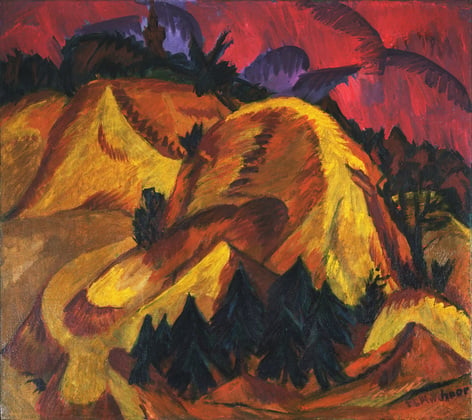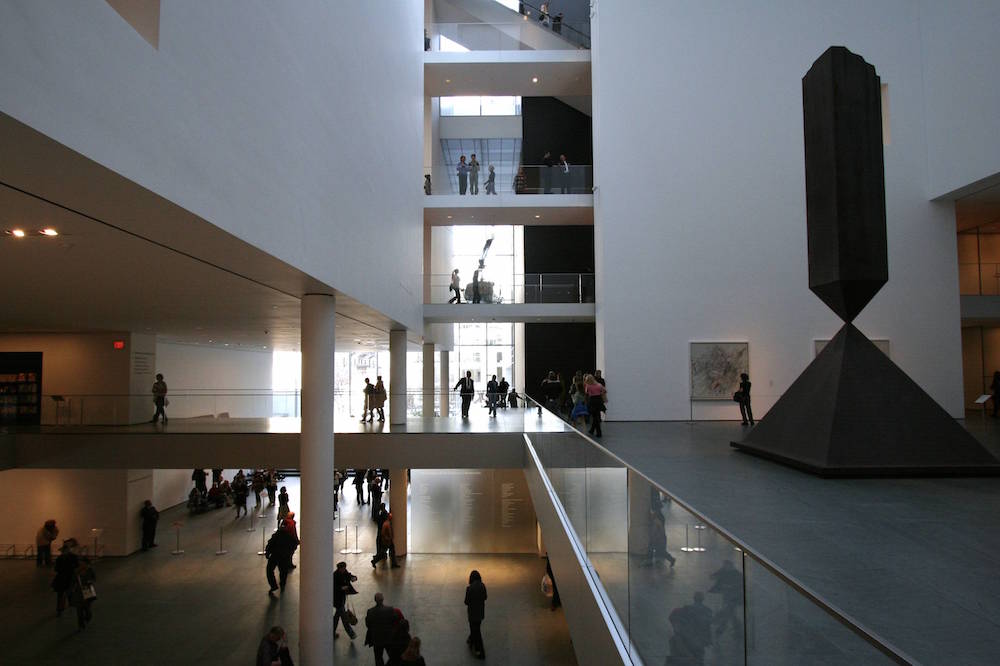Galleries
MoMA Restitutes Ernst Ludwig Kirchner Painting to Heirs of Jewish German Collector
The New York museum has been praised for its handling of this complex case.

The New York museum has been praised for its handling of this complex case.

Henri Neuendorf

The Museum of Modern Art (MoMA) in New York has restituted a painting by the German expressionist Ernst Ludwig Kirchner to the heirs of the Jewish German art collector Max Fischer.
Fischer inherited Sand Hills (Bei Grünau) (1917–18) from the collection of his parents, Ludwig and Rosy Fischer, in 1926.
The restitution process was complicated by the fact that the work was listed in MoMA’s records as Sand Hills in Engadine. Subsequent research indicated that the two names referred to the same artwork.
MoMA is currently home to a high-profile artwork looted by Nazis that has been restituted in recent years. Gustav Klimt‘s Adele Bloch-Bauer II (1912), one of five paintings by the artist that were the subject of a extended legal battle between the Austrian state museum and the portrait sitter’s niece, Maria Altmann, is on long-term loan to the museum.

The museum was praised for its handling of the Nazi-era art claim.
Photo: theredlist.com
According to a statement released by the museum, extensive provenance research—conducted after the Fischer family attorney David Rowland submitted an inquiry—showed that the Sand Hills painting was part of Fischer’s collection until at least 1933. Records show that the work was acquired in Germany by the collector Kurt Feldhäusser in 1938.
Following Feldhäusser’s death in a bombing in Germany in 1945, MoMA acquired the painting in 1949 at New York’s Weyhe Gallery, to whom Feldhäusser’s mother had consigned the artwork.
MoMA determined that Fischer was forced to leave the bulk of his collection behind when he fled Nazi Germany and emigrated to the United States in 1935. The museum concluded that it was highly unlikely that Max Fischer had any knowledge of the transaction or that he profited from the sale, which occurred three years after he fled Germany.

Museum director Glenn D. Lowry said the institution was doing the right thing.
Photo: theredlist.com
“Provenance research is an important and ongoing practice at MoMA,” the museum’s director Glenn D. Lowry said in a statement. “We are grateful to the Fischer family and to David Rowland for their collaboration, and are pleased that the painting will be restituted to the heirs of Max Fischer.”
“There’s no sense of loss. It feels like we’re doing the right thing,” Lowry told the New York Times.
Rowland praised the MoMA for its role in the restitution. “MoMA’s professional handling of this matter, cooperation in sharing research, analysis of complex historical information, and ultimate restitution of this Kirchner artwork is an example of museum best practices in the handling of Nazi-era art claims,” he said in a statement. “The heirs of Max Fischer are grateful to MoMA for their return of this important artwork,” he added.